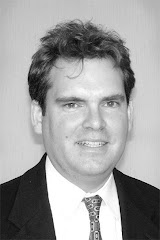Ann Selzer hasn’t exactly invented a time machine.
But with her recent spot-on predictions on the highly visible presidential campaign stage, this Des Moines pollster can make as strong a claim for clairvoyance as any earthly being today.
Selzer Co., the Des Moines Register’s pollster of record, called the Iowa caucuses for U.S. Sen. Barack Obama, D-Ill., and former Arkansas Gov. Mike Huckabee, a Republican, only four days before Iowans made her call official.
In the days before the caucuses, Camp Clinton trashed the poll that ended up being right.
Then, just days ago, working for the Detroit Free Press, Selzer called Michigan for former Massachusetts Gov. Mitt Romney before voters there proved her correct yet again.
“I wish there were magic and mystery to it, but it is basic science," Selzer said.
So what does this Kansas girl turned Iowa poll company president see that others don’t? Why was she so right and her colleagues in New Hampshire so dead-in-the-street wrong only days later?
“People like to look at past events to predict future events,” Selzer told the Iowa Independent.
That can be treacherous in polling. Using 2000 and 2004 turnouts in Iowa to predict this cycle would have been terribly misleading. So she didn’t. Selzer compared what she was seeing with the Iowa electorate to a famous "M.A.S.H." episode in which Hawkeye Pierce (Alan Alda’s character) staged a mess-hall rebellion of “we want something else.”
Obama and Huckabee best represented that, according to the data Selzer collected.
Selzer said the Clinton campaign was based on a collection of issues, not an overall theme, as was Obama’s.
Many voters were tired of the enmity between the Republicans and Democrats — something that Selzer saw in polling and that was borne out on caucus night,as large numbers of independents and Republicans voted for Obama. In terms of the gender gap difference between Iowa and New Hampshire, Selzer said she is at something of a loss to explain it.
Obama did well with women in Iowa, but suffered as a gaping gap opened to Clinton’s benefit in New Hampshire.
“She didn’t really run as a woman here,” Selzer said.
Iowa has never elected a woman to Congress or as governor. Did that play a role at all in the Iowa vote?
“I’m rather stymied by Iowa’s failure to elect awoman,” Selzer said. She chalks it to lack of strong candidates of that gender so far rather than any deep-seeded sexism among Iowa natives.
Her bigger-picture explanation for the Obama-Clinton split in Iowa and New Hampshire is the compressed window of time between the two events.
“He (Obama) got some of this bounce, but it wasn’t afirm grip,” she said.
A native of Topeka, Kan., Selzer, who earned hermaster’s and Ph.D. at the University of Iowa incommunication research and theory, now lives in Des Moines. On caucus night, as she drove past sites and large turnouts, she saw the first game-night evidence that her predictions were about to be right.
“That made me feel pretty good,” Selzer said. She said friends gave her a wide berth that night soshe could either field press calls or “throw up” when the results came in after the caucuses.
“You’re either golden or a goat, and you don’t want tobe a goat in public,” Selzer said.
Taking a long-term view, she sees Obama’s win as a boost for the integrity of the Iowa caucuses.
“It sort of in my mind calms the concerns about minority representation in Iowa,” Selzer said.
Subscribe to:
Post Comments (Atom)





No comments:
Post a Comment